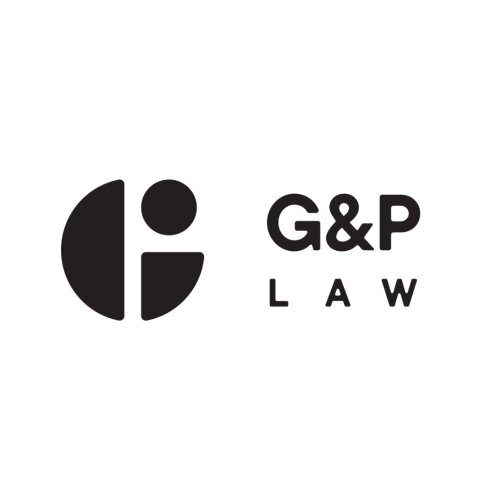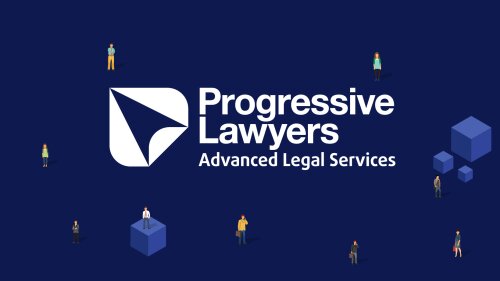Best Public-Private Partnerships (PPP) Lawyers in Sofia
Share your needs with us, get contacted by law firms.
Free. Takes 2 min.
List of the best lawyers in Sofia, Bulgaria
About Public-Private Partnerships (PPP) Law in Sofia, Bulgaria
Public-Private Partnerships (PPP) are collaborative projects between state or municipal authorities and private sector companies for the development, financing, construction, operation, and management of public assets or services. In Sofia, Bulgaria, PPP is an increasingly popular method for delivering large-scale infrastructure, public services, and urban development projects. PPPs allow the public sector to leverage private expertise, funding, and efficiency to meet local needs, while private partners gain business opportunities and stable returns. Bulgarian PPP law is harmonized with European Union regulations and standards, ensuring transparency, competition, and fair processes for all involved parties in Sofia.
Why You May Need a Lawyer
Engaging in a Public-Private Partnership involves complex legal, financial, and administrative considerations. You may need a lawyer for a variety of reasons, including:
- Drafting or reviewing PPP contracts and agreements
- Assessing compliance with Bulgarian and EU PPP regulations
- Participating in public tenders or concession procedures
- Negotiating partnership terms with public authorities or private partners
- Handling project finance and risk allocation
- Managing disputes or misunderstandings arising during project implementation
- Advising on tax, zoning, land-use, or environmental issues
- Securing necessary permits and authorizations for the project
- Protecting intellectual property or confidential information
- Evaluating liability and indemnity provisions
Legal expertise can help avoid costly mistakes, ensure compliance, protect your interests, and navigate the intricate PPP environment in Sofia.
Local Laws Overview
Bulgarian PPPs are regulated primarily by the Concessions Act and related secondary legislation, aligned with the EU Concessions Directive. Key features include:
- Concession Procedures - Most PPPs in Sofia are executed as concessions. The law outlines transparent and competitive tendering procedures administered by local or national authorities.
- Public Interest - All PPP projects must serve a public interest, such as transport, water, energy, public buildings, waste management, or urban infrastructure.
- Risk Allocation - PPP contracts regulate the sharing of financial, construction, and operational risks between the public and private partners.
- Duration - Concession agreements for large infrastructure typically last 10 to 35 years, depending on project specifics and legal limits.
- Transparency and Anti-Corruption Measures - Strict requirements exist regarding the publication of procedures, evaluation criteria, and final agreements.
- Supervision and Oversight - Regulatory authorities are tasked with supervising PPP conduction, compliance, and dispute resolution.
- Applicable Law - Bulgarian law governs PPP contracts, but international investments may also invoke EU and bilateral agreements.
Strict adherence to these legal frameworks is critical for the successful initiation and execution of PPP projects in Sofia.
Frequently Asked Questions
What is a Public-Private Partnership (PPP)?
A PPP is a formal collaboration where the public and private sectors join forces to deliver a public service or infrastructure project. The partnership leverages public authority resources and powers with private sector expertise, efficiency, and financing.
Who can participate in PPPs in Sofia, Bulgaria?
Both domestic and foreign private companies, associations, and consortiums can participate in PPPs in Sofia, provided they meet the qualification requirements specified in the public tender or concession documentation.
What types of projects are usually developed through PPPs in Sofia?
Common projects include public transportation systems, highways, urban renewal, waste management facilities, schools, hospitals, energy infrastructure, and public utilities.
How are PPP partners selected in Sofia?
Public authorities typically select partners through open, transparent, and competitive public tenders or concession procedures, as set forth by the Concessions Act and procurement legislation.
What are the key legal documents in a PPP?
Principal documents include the concession agreement (or PPP contract), tender documentation, technical specifications, risk allocation schedules, payment mechanisms, and performance monitoring frameworks.
How is risk shared between public and private partners?
Risk allocation is determined by contract, with parties agreeing on who assumes risks regarding construction, financing, demand, operation, maintenance, and other critical project aspects.
Can foreign companies participate in PPPs in Sofia?
Yes, foreign entities from EU and non-EU countries can participate in Bulgarian PPPs, subject to meeting local legal requirements and eligibility criteria.
What happens if a dispute arises in a PPP project?
Disputes are commonly settled via negotiation, mediation, or arbitration as provided in the PPP agreement. Ultimately, Bulgarian courts have jurisdiction over unresolved matters unless international arbitration is expressly stipulated.
What are the main supervision authorities for PPPs in Sofia?
The primary regulatory bodies include the Ministry of Regional Development and Public Works, Sofia Municipality, and the Commission for Protection of Competition. They oversee tender procedures, compliance, and fair competition.
How long does it take to complete a PPP project procurement in Sofia?
The timeline varies with project size and complexity. The procurement phase can take from several months up to two years, followed by construction and operation phases as defined in the contract.
Additional Resources
For more information, assistance, or guidance on Public-Private Partnerships in Sofia, consider reaching out to:
- Ministry of Regional Development and Public Works - The key governmental authority for infrastructure PPP policy and regulation.
- Sofia Municipality - The body responsible for municipal PPP projects and local concessions.
- Bulgarian Investment Agency - A public agency guiding foreign investors and advising on regulatory issues.
- Commission for Protection of Competition - Monitors competition, public procurement, and fair practices in PPP projects.
- Professional Legal Associations - Many Bulgarian law firms and bar associations have dedicated PPP practice groups.
Next Steps
If you are considering involvement in a PPP project or need legal advice regarding ongoing PPP matters in Sofia, Bulgaria, follow these steps:
- Define your goals and gather all relevant project documentation
- Consult with a lawyer or legal consultant experienced in PPP law and public procurements in Bulgaria
- Prepare a list of questions and issues specific to your situation
- Evaluate potential risks, requirements, and compliance needs with your legal advisor
- Ensure that all correspondence and negotiations with public authorities or partners are legally reviewed
- Monitor changes in Bulgarian and EU law that may affect your PPP project
- If necessary, seek guidance from governmental or regulatory bodies mentioned above
Taking early legal advice can help you successfully navigate the complexities of PPPs in Sofia and protect your business interests throughout the project lifecycle.
Lawzana helps you find the best lawyers and law firms in Sofia through a curated and pre-screened list of qualified legal professionals. Our platform offers rankings and detailed profiles of attorneys and law firms, allowing you to compare based on practice areas, including Public-Private Partnerships (PPP), experience, and client feedback.
Each profile includes a description of the firm's areas of practice, client reviews, team members and partners, year of establishment, spoken languages, office locations, contact information, social media presence, and any published articles or resources. Most firms on our platform speak English and are experienced in both local and international legal matters.
Get a quote from top-rated law firms in Sofia, Bulgaria — quickly, securely, and without unnecessary hassle.
Disclaimer:
The information provided on this page is for general informational purposes only and does not constitute legal advice. While we strive to ensure the accuracy and relevance of the content, legal information may change over time, and interpretations of the law can vary. You should always consult with a qualified legal professional for advice specific to your situation.
We disclaim all liability for actions taken or not taken based on the content of this page. If you believe any information is incorrect or outdated, please contact us, and we will review and update it where appropriate.
















